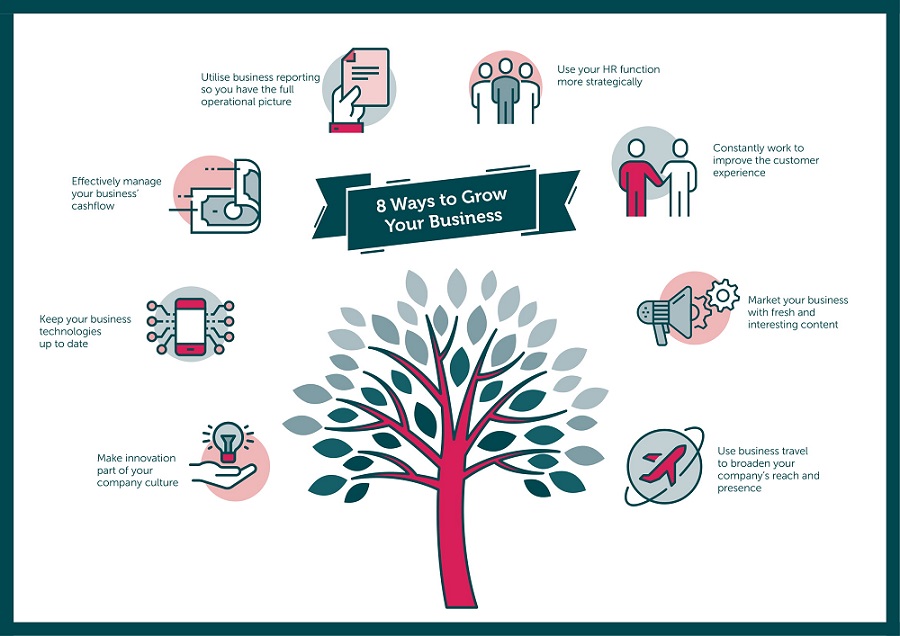While travel is essential for SMEs that want to expand their horizons, it’s not just travel that helps you grow your business. Innovation, technology, and managing cashflow effectively also form part of the blueprint for business success.
While our core business is helping SMEs with their travel planning and management, the process of developing a travel plan with business owners and managers sometimes highlights the growth strategies that haven’t been implemented. Travel activity needs to be supported by and integrated with other business strategies to really maximise growth.
Our research and experience in the SME sector has shown us there are at least eight key ways to take a business to the next level with the main ones involving work in these areas:
1. Making innovation part of the company culture – the business.gov.au website details important tips for innovation including trend analyses of markets, customers and competitors; consulting with customers to generate new ideas; seeking expert advice, government grants and assistance; and establishing innovation as a key business process that involves every team member in brainstorming and problem-solving to help improve products, processes and services to meet the changing needs of markets and customers
2. Keeping business technologies up to date – the right technologies can improve everything from a company’s communication, manufacturing and customer care, to transportation and human resource and data management, all of which can help smaller companies be more competitive
3. Effectively managing cashflow – according to Brad Turville of BJT Financial, this includes having an annual cashflow forecast and using separate bank accounts, i.e. establishing a primary account that receives all income, and allocating monies from that account each month to other separate accounts for profit, pay, tax and expenses
4. Using business reporting that tells the full story – business reports should ideally show both the company’s strengths and weaknesses including revenue, forecasted sales, stock holdings or billable hours, accounts payable and receivable, and profit, to guide better decision-making
5. Using the HR function more strategically – this includes recruitment and training that is aligned with future growth expectations and market changes, as well as the use of data analytics to provide important information on outsourcing and cost management to help the business control cost and direct its future growth
6. Improving the customer experience – PwC research shows 73 per cent of all people cite customer experience as an important factor in their purchasing decisions. Businesses therefore need to focus on the following elements to improve experiences and loyalty:
- Providing the much-needed fundamentals of fast and convenient service through helpful, friendly staff.
- Appreciating that customers are smarter than ever and expect more than before.
- Using data to better understand what customers like and to personalise more relevant offerings to them.
- Balancing digital and human service to ensure the smartest technologies are still backed by people customers can talk to when they need help.
7. Continuously marketing with fresh and inviting content – use affordable social media platforms, digital advertising and email campaigns to help build the company’s image and customer conversations, introduce new products, feed the sales funnel and promote loyalty.
8. Using travel to broaden the company’s reach and presence – this can include roadshows by sales teams, attendance at overseas industry events, and face-to-face meetings with prospects and customers, all of which help breed familiarity and trust with the business and are absolutely necessary for any businesses wanting to expand into new states and countries.

Jess Anscombe, General Manager, Corporate Traveller










